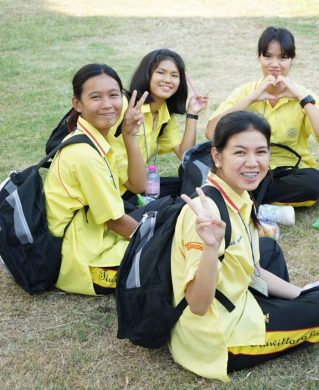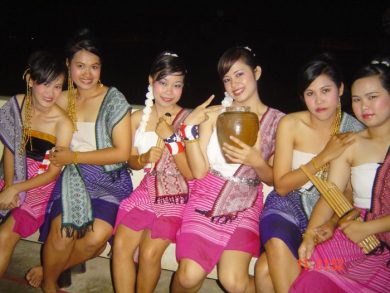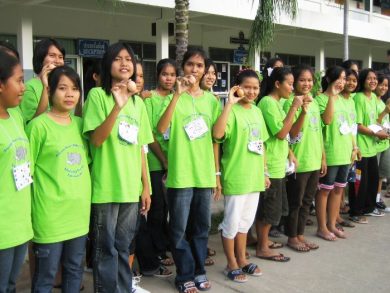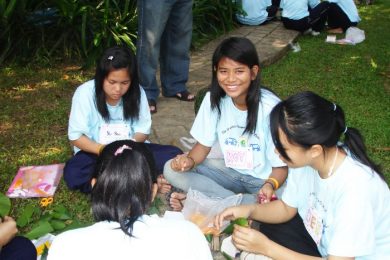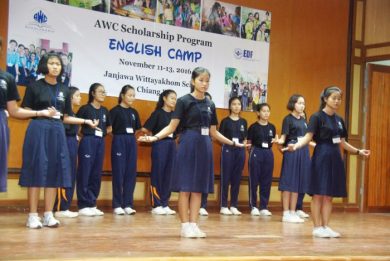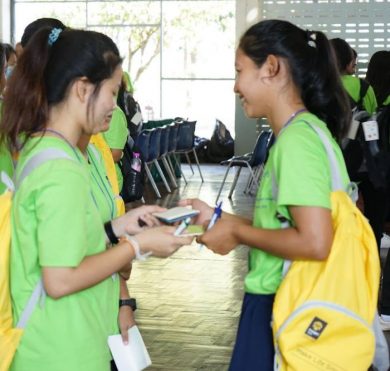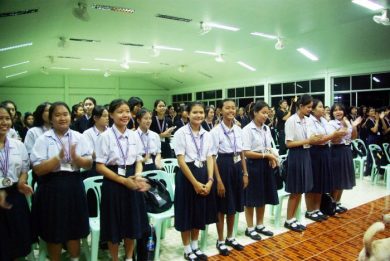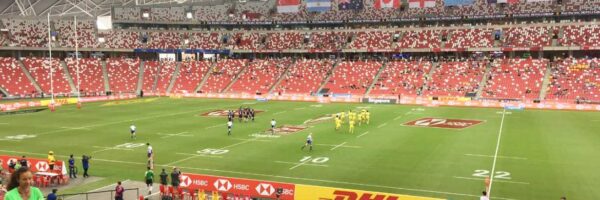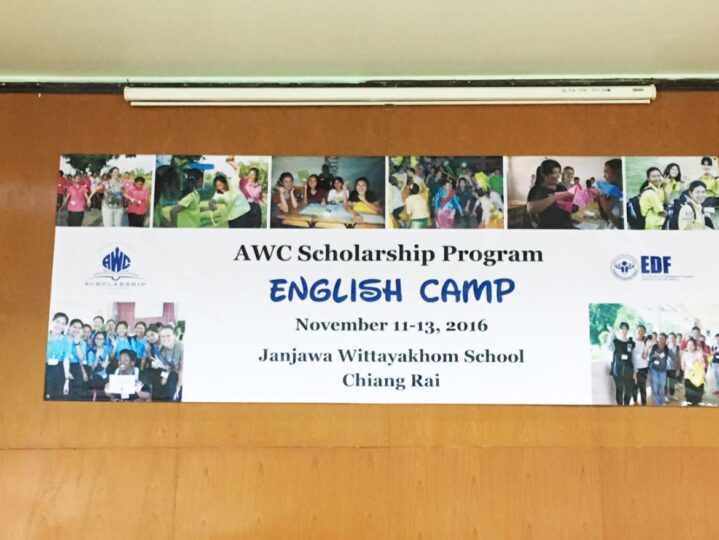
Welcome to English Camp
One weekend in November 2000 a group of inspired, energetic women decided to bring a little bit of a “Western” summer camp to a group of underprivileged Thai high schoolgirls. With that the American Women’s Club of Thailand English Camp was born. Peace Corp Volunteers came to the AWC Scholarship Committee earlier in the year. They wondered if it would be possible to develop a programme that would allow these girls to enjoy a learning environment that would involve them with native English speakers to help with their language skills.
The AWC already had the school connections with their Scholarship Programme that was started 5 years earlier. The committee reached out to Thinopatwittaya School in the northern province of Phrae to see if they would be able to host the camp. Their facilities were large enough to accommodate the 125 students, 20 advisors and 22 volunteers. It was a rousing success! The AWC English camp provides a cross-cultural opportunity for girls in the Scholarship Programme.
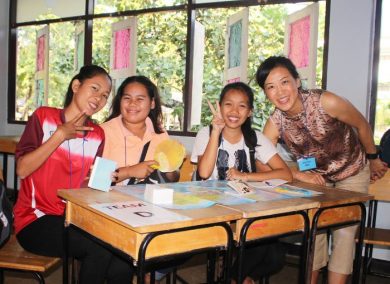
Although the girls are all Thai, camp provides the chance for them to learn about the differences between provinces. This all-expenses-paid weekend gives them the chance to meet new students from different backgrounds. For many of these girls this is the first time they have gone anywhere outside their village without family. While the classes are a bit different today, the core programme for camp hasn’t changed in 18 years.
A rotation of 7 classes, communal lunch, two evening programmes and lots of fun and laughs. It makes for a busy two and a half days. Today’s activities include our version of Scattergories (encouraging the girls to use the forgotten dictionary), Pronouns (something the Thai language doesn’t have), Divide and Conquer (learning how to put sentences together), Just Say It (working on hard-to-pronounce sounds), and Quiz Game (testing all types of cultural, historical, and contemporary knowledge).
The camp curriculum is designed to enhance each student’s use of spoken English and provide them a better comprehension of the language. Speaking English is encouraged, but the Peace Corps Volunteers help with translation when necessary as do other Thai-speaking volunteers. The programme advisors also enjoy attending camp. It helps improve their English skills as well and gives them new tools to take back to their own schools. The students’ English is only as good as their teachers’.
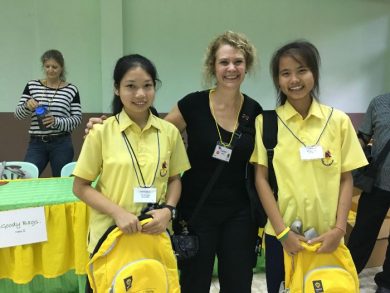
Helping improve the teachers’ proficiency keeps the benefits of camp moving forward in a whole new dimension. English camp provides opportunities for the volunteers, too. Many of the people who come to lend a hand have never been to the rural Thai landscape. It is a chance for them to see a different part of the country. They get to see the simplicity of life that many Thais lead. It is a different perspective than you get from the comfort of a tourist resort. It also provides the platform for the volunteers to better understand the importance of the AWC Scholarship Programme.
What a joy it is to see these bright eager minds soaking up all that they can. Without the extra financial support most of these girls would not be able to stay in school. The highlight for the volunteers is the chance to interact with our girls, getting to know them on a more personal level. For some, camp provides the opportunity to meet the student that they personally sponsor. Even though there may be a language barrier, it is remarkable how easy it is to communicate with them. They enjoy hearing about our experiences back home, wherever that may be. They love hearing about our children and grandchildren, our pets and our hobbies.
